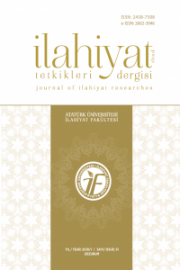Mustafa Lutfî el-Menfâlûtî’de ‘Koyu Karamsarlık’
‘Intense Pessimism’ in Mostafa Lutfi al-Manfaluti
Author(s): Adnan ArslanSubject(s): Other Language Literature, 18th Century, Theory of Literature
Published by: Atatürk Üniversitesi İlahiyat Fakültesi
Keywords: Modern Arab literature; Manfaluti; prose; pessimism;
Summary/Abstract: Western modernity, which considers revelation is in contradiction with reason, science with religion, selfness with the creator and the world with the afterworld, shortly after showing its most powerful influence in its homeland Europe, revealed its world view in Africa and Asia, namely its neighboring lands in the 18th century. Napoleon’s invasion of Egypt has undoubtedly sparked this influence in the Arab world. The Arab world, particularly Egyptian people, has been introduced to Western lifestyle through press and publication and has been negatively affected against its own tradition. Menfalûtî, who sees this negative effect in his own society, has produced literary works with preaching and directing sense of responsibility to his people. However, it is stated that in his works, he often uses a pessimistic style. It is seen that the characters he selected in his stories gave a melancholic atmosphere to the works because of the bitter disasters they experienced. This article will focus on one of the reasons why the author adopts this pessimistic style.
Journal: İlahiyat Tetkikleri Dergisi
- Issue Year: 2019
- Issue No: 51
- Page Range: 353-367
- Page Count: 14
- Language: Turkish

